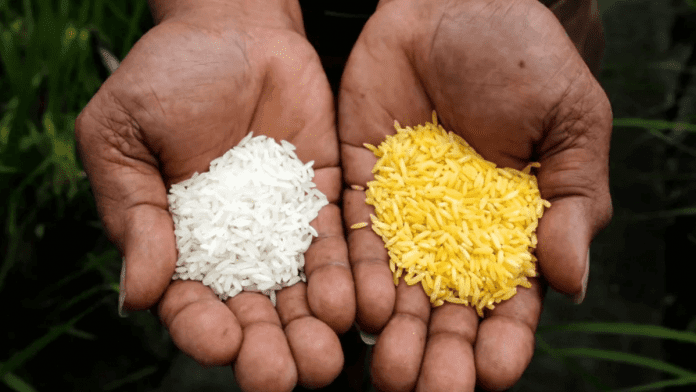News in Brief:
– A Philippines court revoked the permit for Golden Rice, citing environmental and health concerns, impacting small-scale farmers economically.
– The ban may affect the adoption of similar GMO crops in other countries, despite potential nutritional benefits.
In a surprising turn of events, the Philippines’ appeals court revoked the biosafety permit for genetically modified Golden Rice, a variety enriched with beta-carotene to combat vitamin A deficiency. This ruling follows a legal challenge by environmentalists and small-scale farmers, citing potential ecological risks.
Golden Rice, named for its distinctive hue, was heralded as a breakthrough in agricultural biotechnology. Approved in 2021, it promised to bolster the vitamin A intake of children in the Philippines, where 17% of youngsters under five suffer from deficiency. The International Rice Research Institute (IRRI) claimed this innovation could significantly reduce childhood blindness and other health issues linked to vitamin A deficiency.
Environmental concern or economic move?
While environmentalists argue the ban protects biodiversity and prevents potential health risks, the decision leaves many farmers in a lurch. Golden Rice could have been a lifeline for those in impoverished regions, providing a nutrient-rich crop without additional costs. Now, small-scale farmers face uncertainty and economic strain as they revert to traditional rice varieties.

For farmers, the abrupt halt of Golden Rice cultivation translates to more than just a loss of potential yield. The transition back to conventional farming methods could incur additional costs and labour, disrupting livelihoods. Moreover, the promise of improved nutrition for their families and communities is now in jeopardy.
The court ruling might also hinder similar initiatives in other countries like Bangladesh, where vitamin A deficiency affects 20% of children. The resistance faced by Golden Rice could dampen the enthusiasm for GMO crops designed to address nutritional deficiencies in developing nations.
The controversy surrounding Golden Rice highlights a crucial challenge: balancing environmental concerns with the immediate nutritional needs of vulnerable populations. The debate continues, emphasising the need for comprehensive risk assessments and open dialogue between scientists, farmers, and policymakers.



